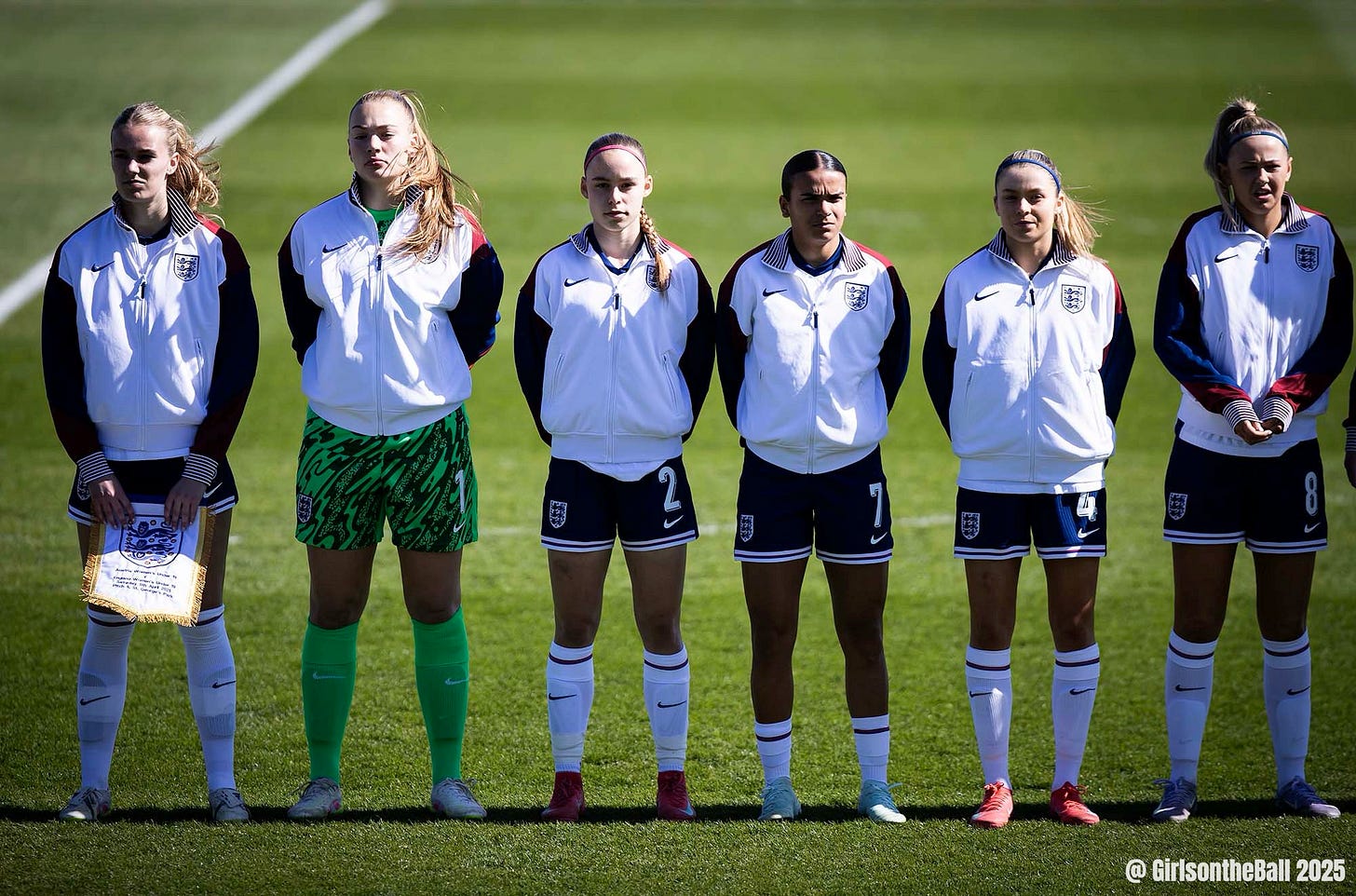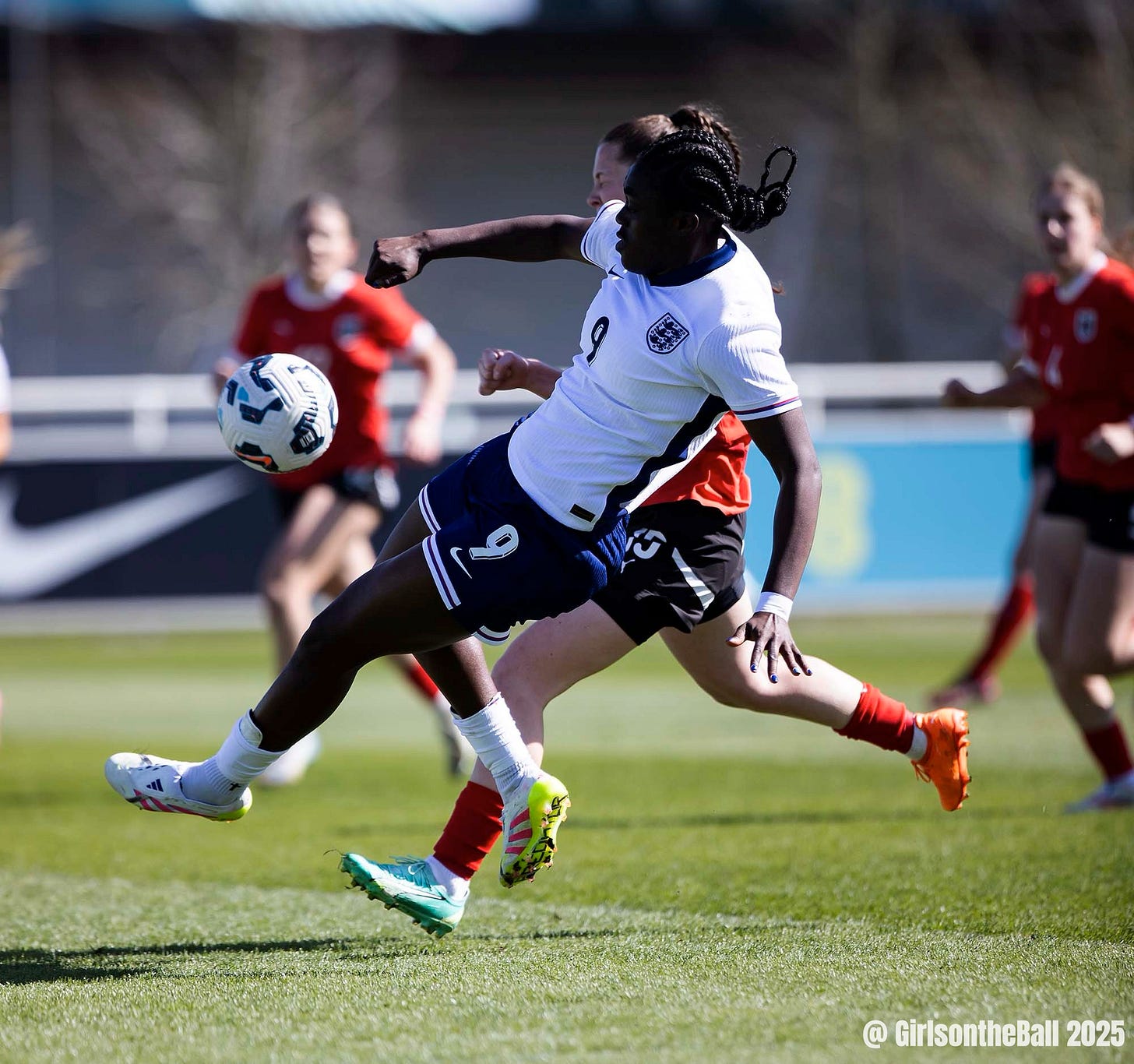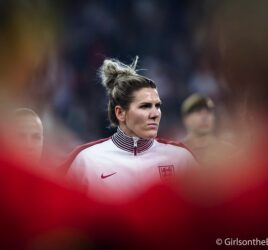The April international window proved a positive fortnight for Lauren Smith and England’s U19s. They cruised through their Round 2 qualification group with a game to spare, booking an all-important spot at this summer’s European Championships.
This crop of Young Lionesses are giving many cause for excitement at what they might be able to achieve this summer and beyond. They are a blend of the U17s who finished fourth at the World Cup in the autumn and last season’s younger U19s who reached the semi-finals at Euro 2024.
“We’ve got a really strong group right now and I feel that people know that,” head coach Smith says. “They are a very talented group and with that comes pressure and privilege… They’re so creative. The key bit now is to perform in this camp so that they get chances to prep in the Euros and then hopefully the World Cup, so that one day they can play for the seniors and be more ready than anyone else has been.”

Sitting down ahead of the April international window, Smith appears comfortable in her new environment. There was surprise when it was announced in September that she would be leaving Bristol City after three seasons to join the England setup, a move widely regarded as a big coup for the FA.
“I was just at a point of change,” she says. “I quite like doing new and different things and I’d been at Bristol City for three years… I think Bristol and the players needed something new. I needed a new challenge and this was a great opportunity to carry on working with youth players and progress in a different way.”
The last eight months have inevitably been a learning process for Smith as she adjusts to the different requirements of the domestic and international game. The lack of time with her players has been the biggest change for the 33-year-old, adapting from working with a set group for a whole season to a more transient group once every few weeks.
“You have to be really specific with your time,” she states. “You can’t waste words; you can’t waste moments. You can’t redo them because you might only get one conversation with those players on camp, or that one-to-one that you get for ten minutes after a game. I’m always thinking about how I deliver the right message which is difficult because I sometimes just talk and talk. I am learning a lot about myself as a coach but also from the people around me. I’ve never been in an environment with so much support before.”
“We use the analogy a lot of ‘It’s what you water so that’s where the grass grows’,” she continues. “We think about what we are watering now and how we see that in the game. If we do that, we’ve done our jobs well because you don’t have a lot of time. That’s kind of how we go about each camp… What’s worth watering? And what do you get the longest grass out of?”

Finding balance is key at this level with players at a crucial time in their development on the pitch and as people off it. “They are senior professional athletes but equally, they are teenagers,” Smith says. “You’ve got to find that balance to make sure they’ve got freedom to be whoever they want and need to be and that they feel safe to do so. And then equally, make sure that we are pushing the standards and making sure that performance is key. It’s a fun balance and it brings challenges.”
This also involves managing players who are at different stages of their journey. Some might be playing first team football week in, week out while others might be training with their senior sides but getting less game time. In her first eight months, Smith has also had to deal with not having a real set group until their friendly camp in February. The players who were part of the U17s team at the World Cup were given time to recover in the winter, meaning they missed out on Round 1 qualification, while the likes of Michelle Agyemang and Katie Reid have spent time with the U23s.
Managing this movement of players means the need for strong relationships across the pathway as they work out the best course for everyone. At the end of the day, success for the youth groups is not just success at tournaments; it is about putting each individual in the best possible position to reach the senior team.
“There’s a real nice energy around this building,” Smith says. “At the start of the week, the seniors are in. I always catch up with Emma [Coates] with the U23s. We’re talking about players – where their movements are; what stretch opportunities there might be; and what competitive opportunities there are.”
“The seniors are interested in having conversations around the players that are playing week in, week out in the U19s and getting to know what that looks like,” she continues. “That doesn’t mean that they go in there in the next camp. It just means that we know who’s coming through. I think that’s a really important step in having a healthy pathway. It’s the same as what I did at club. You need to know who the best U12s are because one day they’re going to play for you. It might not be tomorrow, but it will be one day.”
A prime example of this fluidity was the call up of Agyemang to the Lionesses the day after the U19s had secured a place at the Euros. The 19-year-old forward went on to make her debut against Belgium in Leuven, scoring after 41 seconds to become another name added to the list of pathway successes.
Poland awaits this summer for Smith and her cohort as they look to go one better than last year’s semi-final finish. They have not had the luck of the draw, facing a tough group in Spain, the Netherlands and Portugal (the first two were last year’s winners and runners-up respectively) but confidence and hopes will be high that they can progress. It is not just the Euros title up for grabs this summer. All eyes will be on the Young Lionesses as on their quest for silverware and a top 5 finish to ensure they qualify for next year’s U20 FIFA Women’s World Cup.



